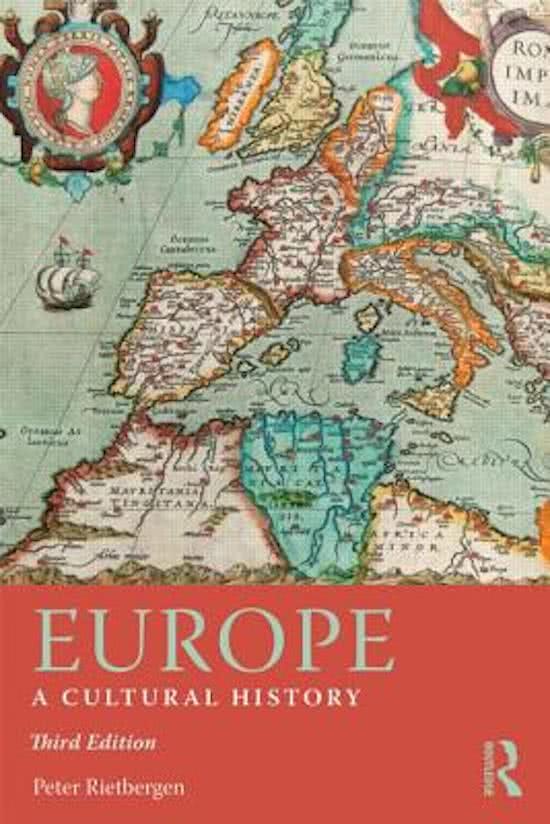,Reading guide CTG
Stonehenge →2300 BC Megalithic monument in England. Upright stones are arranged
circularly. It is an important prehistoric place on earth. Similar to dolmens, this monument
was used as a cemetery.
Zeus →1600 BC Ffigure from Greek mythology. Supreme god, who ruled from Mount
Olympus. The Roman equivalent of Zeus is Jupiter. Zeus' most
essential function is that of heaven god, nature and all its phenomena were subject to him.
Zeus' wife was his sister Hera, who
was terribly jealous. In addition to Hera, Zeus had at least nine other relations with
goddesses and fourteen with mortal women.
Ramesses II →1300 – 1200 BC. Egyptian pharaoh. Considered the greatest pharaoh of all
time. Have a lot built. Client of the construction of the temple of Medinet Habu. Also have a
new capital built in the Nile Delta. He was about 90 years old (much before that time)
Aenaes →13rd or 12nd century BC. A mythological Trojan hero. The son of Goddess
Aphrodite & mortal man Anchises. This made Aenaes a demigod. He is leader of the
Trojans. He left the burning Troy at the end of the Trojan War with his father on his back. He
later went to live in Italy. Aenaes' son, Ascanius, founded Alba Longa, from which Rome
was later founded.
Homer →800 – 750 BC Homer. Greek poet and singer. Crafted epic poems, hero sagas,
stories of gods and mythical tales that he begat from his culture.
Illias & Odyssey best known and preserved. Greek literature. Uncertainty about this.
Odyssey →800 BC Epic poem by Homer.
It is largely about the wandering of the hero Odysseus after the end of the Trojan War and
his return home to the island of Ithaca. Along the way he gets all difficulties so that the trip
home was not as short as he thought beforehand
Europe →Geographical term from the 7th century BC. conceived by the Greeks.
It originated from Greek mythology:
Zeus takes the form of a bull and in this way kidnaps the Phoenician princess Europe to the
island of Crete. Europa is giving up 3 children with Zeus, including Minos.
Later, Zeus had to return to Olympus and Europe married King Asteriondie. He also adopts
Europe's three children.
Genesis →6th and 5th century BC. First book of the Hebrew Bible.
The story from the beginning, the creation, through the patriarchs of the Israelites to the
exile of Jacob's family with followers in Egypt.
Herodotus →5th century BC. Merchant and traveler. In the west considered as father of
history writing. It reproduces a discussion that is being held among the Greeks. Was both
1
, against the Persians, most feared enemy of the Greeks, and against thegenes with
monarchist tendencies in Greece itself.
Plato →5th – 4th century BC. Greek philosopher. Wrote Politeia in which he criticized
democracy. He had outspoken feminist ideas. In Symposium he names 2 worlds. One
consisting of senses and one consisting of ideas. He is the patriarch of metaphysical realism.
Socrates →4th century BC. Classical Greek philosopher from Athens. Considered the founder
of Western philosophy. The Sophists dominated higher education. They argued that through
a logical, rational way of thinking, man was able to discover rules that govern the structure
of language and nature. Therefore, man should also be able to conclude that there are no
absolute laws, regardless of whether the gods would have given them.
Socrates was opposed to this idea and insisted that laws were anchored in absolute, moral
standards that existed independently of man, place, and time. His opposition still provokes
debate in today's society.
Socrates left no writings, and his thinking is known by the following sources:
• Aristophanes, he was a sharp critic of the ideas of Socrates
• Plato, he was the most important pupil of Socrates
Socrates was in constant conversation, to squeeze knowledge out of all kinds of people, and
then to examine it and possibly reject it. He was sentenced to death for his bad influence on
youth. He was forced to drink from a poisoned cup, but he believed in the immortality of the
soul, so according to him, nothing could happen to a good man.
Hannibal →400 BC Grandson of Hamilcar Mago. His nickname is Mago. Was suffeet of
Carthage. He conquered Greek cities selinous & Himera and had 3000 prisoners of war killed,
in revenge for the defeat of his grandfather at the battle of Himera.
He died of the plague, during the siege of Akragas.
Hippocrates →400 BC. Greek physician. Founder of Western medicine. He was the first to
think that the natural instead of the supernatural caused diseases.
He placed a strong emphasis on hygiene, healthy eating patterns, fresh air.
He was convinced that human health depended on the balance between bodily fluids:
imbalance would cause disease.
Body consists of 4 bodily fluids: mucus, blood, yellow bile & black bile.
Aristotle →400-300 BC Greek philosopher. One of the most influential classical philosophers
in the Western tradition. He was a member of Plato's philosophical Academica (in Athens),
his influence is present, but is clearly different from Plato's philosophical current.
Republic (state), of Plato →380 BC. Text by Plato on the form of a Republic. Preserved and
translated in Baghdad and later rediscovered by monks.
He laid the foundations of his political philosophy there, but his ethics and theory of ideas
also appear in it. The work is famous for its rich content and literary style and the
'totalitarian aspect' of the state in it.
2






